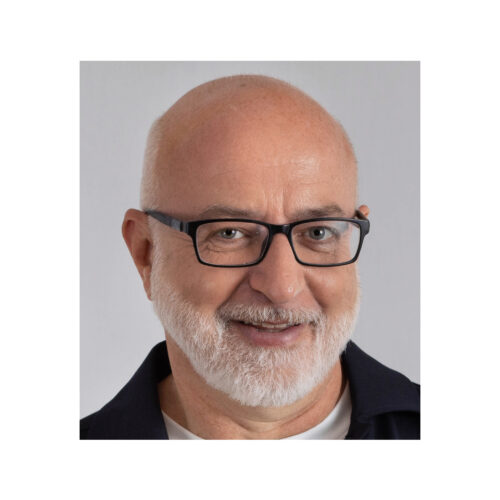Paolo Barilari on Aseproce insight. FELCA, Exchange of experiences and unity of agencies’ voice
The brand new newsletter of the Spanish association, ASEPROCE Insights, called Paolo Barilari, FELCA’s president since 2019 and re-elected in 2023 for a second term to asking about FELCA’s role, the current state of the industry, the value of agencies, and ASEPROCE’s contribution within the framework of the World Federation.
Here the full interview.
- Paolo Barilari, when was FELCA founded and why?
Felca was founded in 1997. A group of representatives from the first national associations existing at the time — including ASEPROCE — gathered and were inspired by Scott Wade, from Study Travel Magazine and organizer of the Alphe workshops. They shared their experiences and founded Felca, the World Federation.
The reason for the creation of Felca lies in the fact that agencies around the world share the same experiences, face the same problems, and interact with the same schools. Together, in Felca, the exchange of experiences and the united voice of agencies represent the most important benefit of being organized.
- How many agency associations are there?
Currently, there are about 20 national associations worldwide, 14 of which are members of Felca.
- Since when have you been president?
I have been Felca’s president since September 2019. The term as president lasts four years. In September 2023, I began my second term, which will end in September 2027.
- What is ASEPROCE’s contribution to the association?
ASEPROCE is, of course, one of the oldest agency associations and undoubtedly one of the largest and best organized. ASEPROCE plays an important role in Felca.
First, Spain provided an important president in Juan Manuel Elizalde, who led Felca for several years and is currently Felca’s treasurer and advisor. Furthermore, due to its strength and organization, ASEPROCE serves as a very important model and source of inspiration for all other national associations.
- What are the main current areas of action?
Felca is signing a series of Memorandums of Understanding with all major school associations that are members of Gaela (the Global Alliance of Education and Language Associations).
The importance of these memorandums does not lie so much in developing marketing actions (which are reserved for similar agreements between national associations), but rather in the mutual recognition of the quality of Felca agencies and the schools from national associations.
Based on this reciprocal understanding of the high quality of our work, the idea is to develop a series of joint actions that facilitate collaboration between schools and agencies.
- There is currently some controversy regarding the growing number of agency accreditations. What is FELCA’s position?
Felca’s position on the large number of accreditations coming from various sources is twofold. We welcome all training courses offered by national school associations so that our consultants, who work in FELCA agencies, always have up-to-date knowledge of what different countries and their schools offer.
However, these training courses are not intended to accredit Felca agencies, which are already accredited by their national associations and follow their codes of conduct, as well as Felca’s.
Felca’s position is completely different toward those who believe they have the authority to accredit agencies that are already part of national associations — and therefore part of the World Federation. No external body has the same experience, the same knowledge of the local market, or the direct and constant contact with its members necessary to accredit FELCA agencies.
- ASEPROCE has its own accreditation based on the ASEPROCE Standard and externally audited. Is there anything similar in other associations?
ASEPROCE, with its external audit, is one step ahead of many other associations that still conduct their audits internally. ASEPROCE’s ability to stay ahead is also due to the association’s numerical strength, which allows it to take truly well-structured measures. All other associations, of course, have their own code of conduct. For example, a very interesting and comprehensive code of ethics is that of the Latin American associations in Brazil, Mexico, and Argentina, which guarantees high quality and respect for the fundamental standards of agency work.
- Do you think schools and providers really understand the added value that agencies bring to the academic experience, or do they just see us as a sales channel?
Schools know the value of agencies, especially high-quality ones, which play a fundamental role in providing honest and transparent advice about the best school and the most suitable course for each student. I am convinced that schools fully recognize the value of professional agencies. However, it is also clear that the strong competition in the sector drives schools to use other sales channels.
- As an Italian, what differences do you see in how our agencies operate compared to those in your country?
Spain and Italy are very similar. Agencies operate in a very similar way, and our students have the same preferences. It is common to see both Spanish and Italian students in Ireland, Great Britain, or Canada. On the one hand, I am happy about this similarity; however, the fact that such similar Latin-speaking students are together sometimes makes the process of learning English a bit more difficult. That being said, the friendship between Italy and Spain is strong, and the interaction between our students is certainly enriching. I must also say that Spain, in some respects, has been ahead of us. I clearly remember how, a few decades ago, Spain was already talking openly and widely about the academic year abroad, while in Italy this type of market had not yet arrived.
- How do you see the future of our industry with so much uncertainty around the world?
The future of our sector, despite the ups and downs, is certainly positive. I remember that since I have been in this industry (since 1989), we have gone through many crises: from the Yugoslav War to the mad cow disease, and more recently, the COVID-19 crisis. Agencies and schools have, for the most part, always survived and have come back stronger. If we talk about the uncertainty that prevails in the world right now, I believe that our work can, in a small but significant way, contribute to mutual understanding between different nationalities. By sending students to learn another language, another culture, and another people, we are placing our small brick in the construction of world peace.

